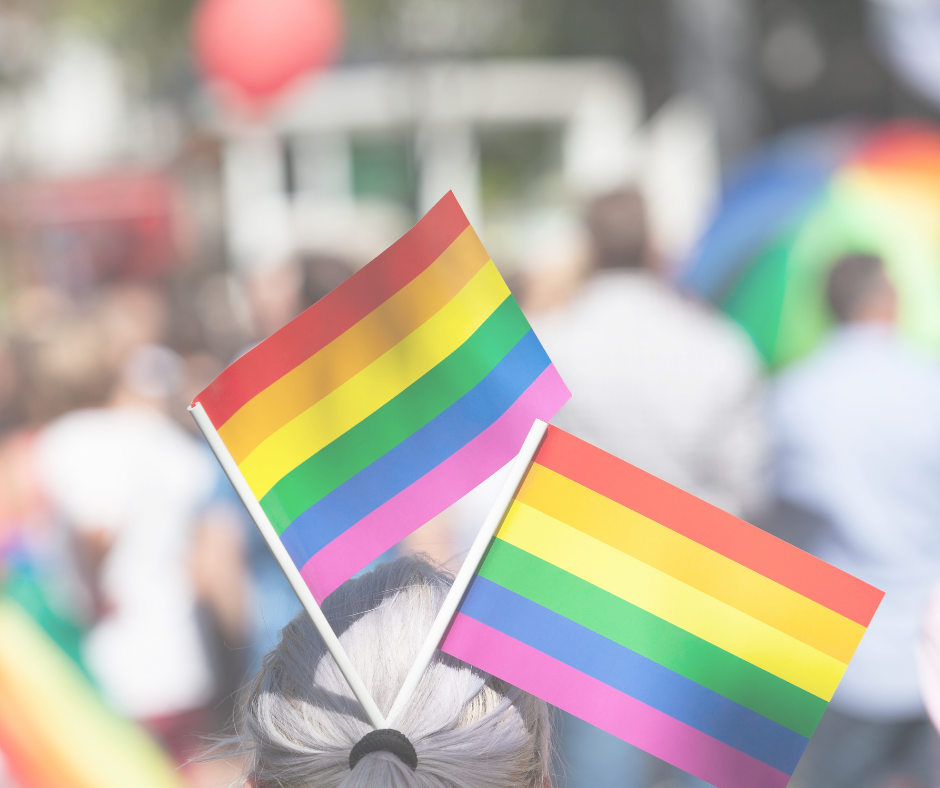How to be an LGBTQ+ Ally and Help Make the World a Friendlier Place (from One Ally’s Perspective)6/3/2019 Knowledge, understanding, and love are antidotes to division and intolerance. As it is PRIDE month (Happy Pride everyone!), this is an opportunity to explore the impact we can make on others, and to learn how to support our friends, family, colleagues, employees and fellow human beings as allies.
How does this tie into mental health, you might be asking…? By use of language (written, spoken, and body) we all impact our environments, and in doing so—other people. Using certain words or repeating anecdotes that hurt and oppress other people (knowingly or not), contributes to an unsupportive environment. There is plenty of research to show that living in a non-inclusive environment contributes significantly to mental health issues. What does 2SLGBTIAQ+ stand for? This acronym is thrown around a lot, so I figure I should spell it out. 2SLGBTQ+ is an acronym that stands for:
If you are unsure what any of these terms are, please take the time to understand them and to inform yourself of their meaning. Why is this important? Well, it comes down to human rights. We are all human, and simply put—we all deserve respect and kindness. Some things you may not consider if you are not part of the 2SLGBTIAQ+ community is the impact that others can have on mental health. More often than not (sadly), 2SLGBTIAQ+ identifying individuals face isolation, mistreatment, discrimination, stigma, and prejudice on a regular basis from people in their lives whether it be family members, friends, colleagues or employers. When prejudice and discriminatory behaviours are normalized and accepted in society, it can become acceptable to dehumanize groups of people and see them as "other." "Other" becomes "us vs. them." Division grows. And the human rights to which every living person is entitled, including freedom of expression, bodily autonomy, and medical care, are threatened. What does it mean to be an ally? It means you are a person who is unconditionally accepting and supportive of 2SLGBTIAQ+ identifying people. Whether or not you know it, you are surrounded by people of varying sexual orientations, gender expressions, and gender identities and it is important to learn how to be kind, thoughtful, informed and supportive of others. How can I help? Taking steps to use supportive and inclusive language can seem daunting, but as language is integral to culture and sets the context for any environment, it's the simplest way to demonstrate inclusivity. It’s really just about taking time to get to know people and understand their preferences. It doesn’t take much effort to perform a Google search, read an article, watch a TV show (Netflix has MANY 2SLGBTIAQ+ friendly shows), where you can hear people’s stories and get to know more about their experiences as well as learn how to use language that is inclusive and supportive. You can also follow our local organizations such as Pride Thunder Bay and the Rainbow Collective to learn more. We are all people. When it comes down to it, we have more commonalities than we have differences. We challenge each of you to consider the impact your language has on others, also to open your hearts and minds and to get to know people for who they are. Here are some great resources to help you on your journey of knowledge: |
|
OverviewNWO’s source for all things relationships, mental health, wellness, lifestyle, and pandemic support. Kelly Magazine is a mental health outreach initiative created by Kelly Mental Health and supported by Kelly Mental Health Foundation, a non-profit organization dedicated to improving the community in the area of mental health.
|
Magazine |
Follow Us |
In support of @kellymentalhealthfndn |
© COPYRIGHT. ALL RIGHTS RESERVED. WEB DESIGN BY KMH




